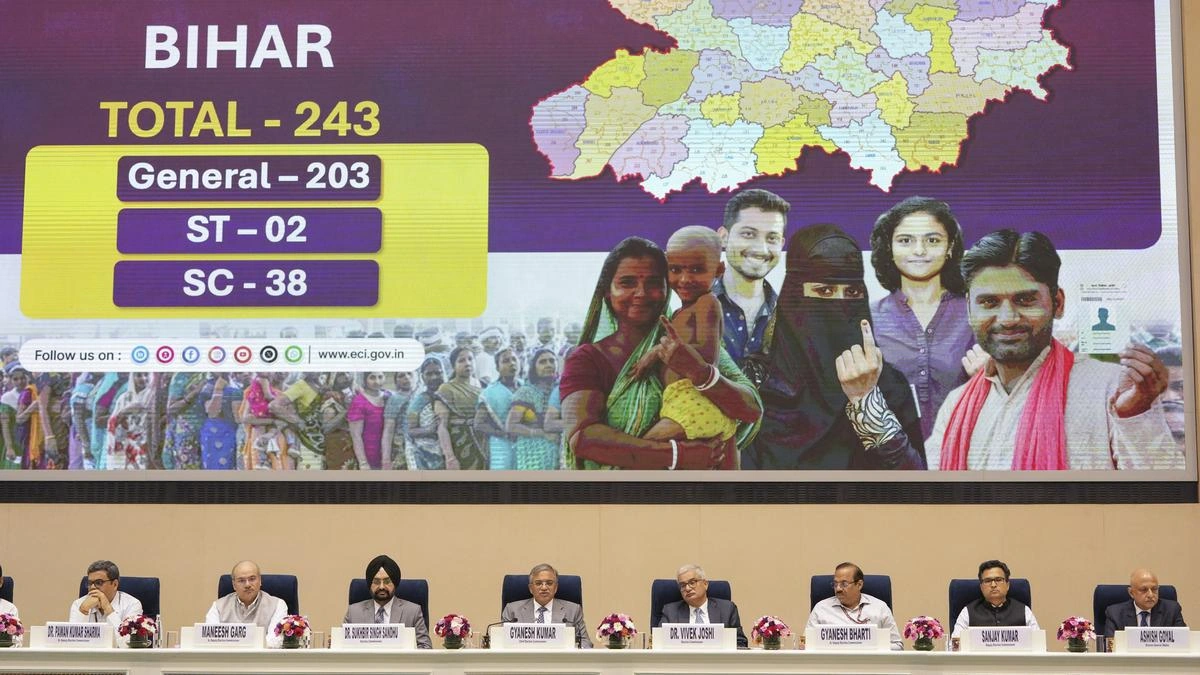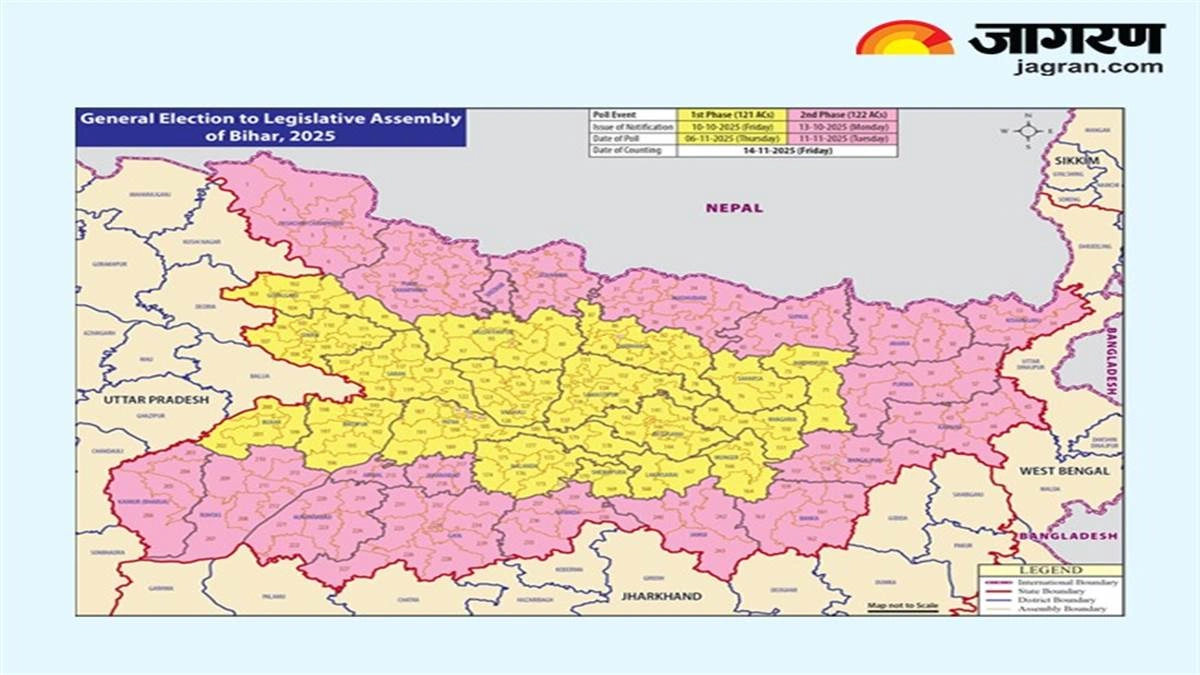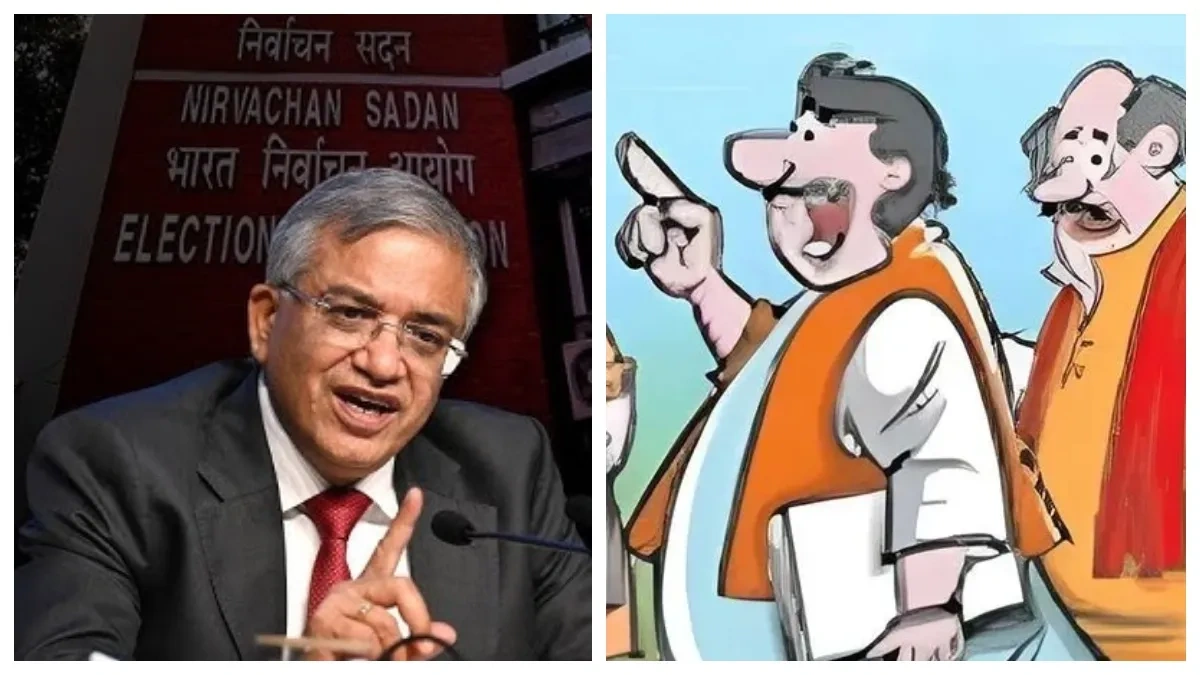ECI Monitoring SMS and Voice Messages During Bihar Assembly Polls ‘Silence Period’
Ever felt like you’re being watched? During election time in Bihar, that feeling might be a little closer to reality. But it’s not necessarily a conspiracy theory – it’s the Election Commission of India (ECI) doing its job. And this time around, they’re paying close attention to SMS and voice messages during the crucial “silence period”. What fascinates me is the Election Commission of India (ECI)’s increasingly tech-savvy approach to maintaining election integrity. It’s no longer just about booth monitoring; it’s about policing the digital space too. But why are they doing this, and what does it mean for you? Let’s dive in.
Why the ‘Silence Period’ Matters – And Why SMS Monitoring?

Okay, so the “silence period” – those 48 hours before polling day when campaigning is prohibited – is designed to give voters a chance to reflect without the noise of political rallies and ads. Makes sense, right? But here’s the thing: in the age of smartphones, that silence can be easily broken. Think about it: a well-crafted SMS, a viral voice message – these can sway voters just as effectively as a last-minute rally. This is where the monitoring of SMS and voice messages comes in.
The ECI isn’t just randomly snooping, of course. They’re focusing on bulk messages and coordinated campaigns that could potentially violate the code of conduct. This includes messages containing appeals to vote along caste or religious lines, spreading misinformation, or offering inducements. It’s a pretty big deal, and it highlights how elections have evolved. Back in the day, it was all about physical rallies and posters. Now, the battleground is your phone. A common misconception is that this is new but this type of election campaigning and monitoring is a growing part of all election types around the world.
How Does the ECI Actually Monitor These Messages?
Let’s be honest, it’s not like the ECI has someone manually reading every single SMS in Bihar. That would be impossible! Instead, they use a combination of technology and human oversight. They work with telecom operators and social media platforms to identify suspicious activity. This might involve keyword monitoring, analysis of message traffic patterns, and reports from citizens. According to the ECI’s handbook for Returning Officers , there are specific protocols in place for handling complaints related to violations of the Model Code of Conduct on social media and other digital platforms. It’s important for everyone to have faith in the integrity of the election process .
I initially thought this was a simple case of blocking unwanted messages, but it’s far more nuanced. The ECI has to balance the need to ensure fair elections with the fundamental right to freedom of speech. It’s a tricky balancing act, and one that’s constantly evolving as technology advances. But the focus is on maintaining fair elections in Bihar.
The Implications for Voters in Bihar
So, what does all this mean for you, the voter? Well, firstly, it means you should be extra cautious about the messages you forward or share. Spreading misinformation, even unintentionally, can have consequences. Remember, ignorance of the law is no excuse. Secondly, it means the ECI is taking steps to ensure a level playing field. This is crucial for the health of our democracy. A common mistake I see people make is underestimating the power of misinformation during elections. Don’t fall for it.
And thirdly, this monitoring isn’t just about catching the bad guys. It’s also about creating a climate of accountability. When political parties and candidates know they’re being watched, they’re less likely to engage in dodgy tactics. But the ECI isn’t the only one with responsibility here. As voters, we also have a role to play in ensuring a fair election. Be vigilant, be informed, and don’t be afraid to call out wrongdoing. This monitoring also helps to maintain the Bihar election code of conduct .
The Future of Election Monitoring in India
What fascinates me is the future of election monitoring in India. As technology continues to evolve, the ECI will need to adapt. We can expect to see even more sophisticated methods of tracking online activity, including AI-powered tools to detect fake news and identify coordinated disinformation campaigns. But it’s not just about technology. It’s also about educating voters and empowering them to make informed decisions. The ECI’s efforts in the Bihar Assembly polls serve as a crucial benchmark in setting a precedent.
The one thing you absolutely must double-check is the source of any information you receive during the election period. Don’t just blindly believe everything you read on social media or receive via SMS. Verify the facts before you share them. The responsibility for fair elections doesn’t rest solely on the shoulders of the ECI; it’s a shared responsibility. Let’s all do our part to ensure that the Bihar Assembly polls are free, fair, and transparent. And remember to use voter awareness programs provided to you!
Let us not forget the critical role of election analysis . It is the process of reviewing and interpreting election data, including voter turnout, candidate performance, and demographic trends. This analysis provides insights into the factors that influenced the election outcome and helps to identify areas for improvement in future elections.
FAQ Section
What exactly is the ‘silence period’?
The ‘silence period’ is the 48-hour window before polling day when campaigning is prohibited, to allow voters to reflect without political noise.
How does the ECI monitor SMS and voice messages?
The ECI collaborates with telecom operators and social media platforms, employing keyword monitoring and traffic analysis to detect suspicious activities.
What should I do if I receive a suspicious message?
Report it to the ECI or relevant authorities. Don’t forward it without verifying its authenticity.
Is the ECI violating my privacy by monitoring messages?
The ECI focuses on bulk messages and coordinated campaigns that could violate the code of conduct. The ECI needs to ensure fair elections with the fundamental right to freedom of speech and balances both.
What are the penalities of violating the election code of conduct?
Penalties for violating the code of conduct during the Bihar Assembly polls could include fines, imprisonment, or disqualification from contesting elections, depending on the severity and nature of the violation.
So, there you have it. The ECI’s monitoring of SMS and voice messages during the Bihar Assembly polls ‘silence period’ is a sign of the times. It’s a recognition that elections are no longer just about physical rallies and posters – they’re about the digital conversations happening on our phones. And while it might feel a little Big Brother-ish, it’s ultimately about ensuring a level playing field and protecting the integrity of our democracy. Remember it is more than just Bihar election news , it is the future of fair elections.













